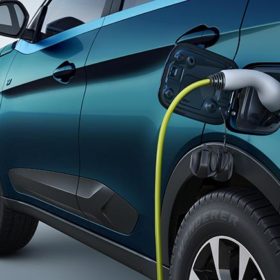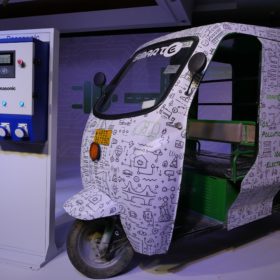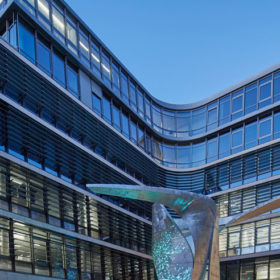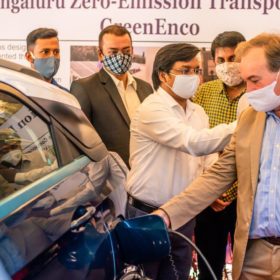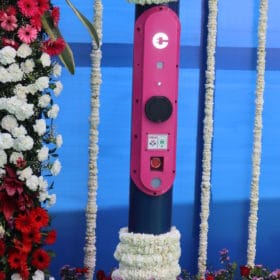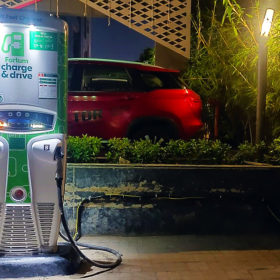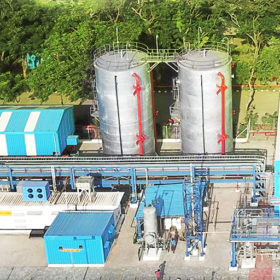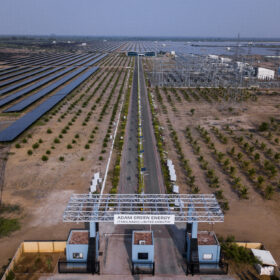Tata Power to set up EV charging stations at HPCL petrol pump stations
Tata Power owns an expansive network of over 500 public electric vehicle chargers in 100+ cities across India. Partnering with HPCL allows it to further expand its base in line with the Indian government’s National Electric Mobility Mission Plan to promote electric mobility.
Tata Power installs DC fast charger near Statue of Unity in Gujarat
The installation of the DC fast charger is in sync with the Government’s move to make Kevadia the country’s first ‘only electric vehicle city.’ The charger is supported by Tata Power EZ Charge Mobile App that helps EV owners locate the station in real-time.
FAME II subsidy scheme extended by two years
The second phase of the Faster Adoption and Manufacturing of (Hybrid) and Electric Vehicles (FAME) subsidy scheme to promote electric mobility in India will now run until March 31, 2024.
Siemens sees big opportunity in India for its electric mobility solutions
The company expects the first phase of growth in the Indian electric vehicle market coming from commercial vehicles. It has been quick to capitalize on the opportunity by partnering with Switch Mobility, the electric vehicle arm of commercial vehicle major Ashok Leyland.
Ashok Leyland’s Switch Mobility signs up Siemens for electric mobility solutions
Siemens will provide smart charging infrastructure solutions for Switch Mobility’s commercial electric vehicle customers in India. It will also collaborate on implementing innovative business models such as eMobility-as-a-Service, Vehicle-to-Grid, and on-site/off-site renewable energy sources by leveraging batteries from commercial vehicles.
IISc sets up off-grid EV charging station powered by Vikram Solar modules
The Indian Institute of Science (IISc), Bangalore has set up a solar-powered charging station to conduct the system’s impact assessment. The system—designed by UK-based renewable energy advisor GreenEnco—uses Vikram Solar’s 16 mono PERC solar modules of 400 Wp each, a hybrid inverter, and battery storage.
HPCL fuel stations get street lamp integrated EV charger
Magenta Power has installed street lamp integrated EV chargers at HPCL fuel stations in Delhi and Mumbai. The company aims to deploy 1000 units of these charging solutions across the nation this year.
India’s 2030 electric vehicle ambition could create INR 85,900-crore battery opportunity
A new report says that the nation would require an estimated annual battery capacity of 158 GWh to realize its 2030 electric vehicle (EV) adoption target. Meeting this potential demand would require investments exceeding INR 85,900 crore (US$ 12.3 billion) in case battery manufacturing is 100% indigenized.
Government planning electric vehicle charging kiosks at 69,000 petrol pumps
An underdeveloped charging ecosystem is one of the many factors restricting the uptake of electric four-wheelers in India. A limited number of products and higher costs than combustion-engine powered vehicles are the other deterrents.
Fortum gets Finnfund to accelerate EV charging infrastructure
The clean energy major has raised investment from Finnish impact investor Finnfund in its public charging point operator business Fortum Charge and Drive India.
